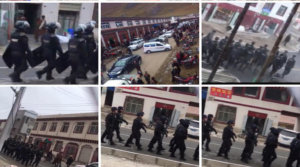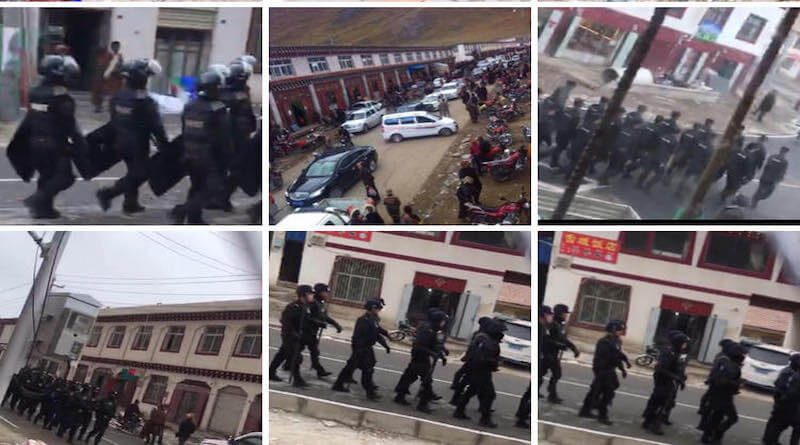Zachukha under heavy police deployment, Tibetans arbitrarily detained after protests demanding Tibet’s independence

DHARAMSALA, 6 Dec: The Communist regime in Tibet has deployed a large number of heavily-armed police in Dza Wonpo and surrounding villages in Zachukha in the traditional Tibetan province of Kham after the region witnessed two separate protests in November last year calling for Tibetan independence.
A large number of heavily-armed police forces were deployed in the region to heighten security and surveillance and to intimate Tibetans in the region following the arrest of the two Tibetan youth, Choegyal and Yonten on 21 Nov from Zachukha and Kunsel, 20 along with Tamey, Sota and Tsultrim, all-around 18 years old from Dza Wonpo Gaden Shedrup Dhargyaling monastery in the region on 7 Nov for their protest demanding Tibet’s independence, sources in the know told The Tibet Express.
“As a result, Tibetans in the region live under constant fear while the region looked deserted,” the sources disclosed.
The region was put under heightened security and surveillance after
Sources also said that for nearly half a month following the protest, scores of Tibetans from Dza Wonpo and surrounding villages in Zachukha were subjected to arbitrary detention and interrogation besides thoroughly scanning their mobile phones and forcing them to sign unknown documents.
“Over thirty people were fed with only Tsampa for 15 days while being held in detention,” sources said.
Those held in detention reportedly include Tibetans whom China suspects were in touch with Tibetans outside Tibet, for their online activity, for possessing His Holiness the Dalai Lama’s portrait and for speaking against the communist line and some non-political offenders.
The Chinese authorities were also said to have forced many monks from the region for political indoctrination session during the said period besides threatening and intimating Tibetans with dire consequences for holding protests.
“The heavily-armed police conducted drills to make their presence felt and to intimidate Tibetans in the region,” sources added.






